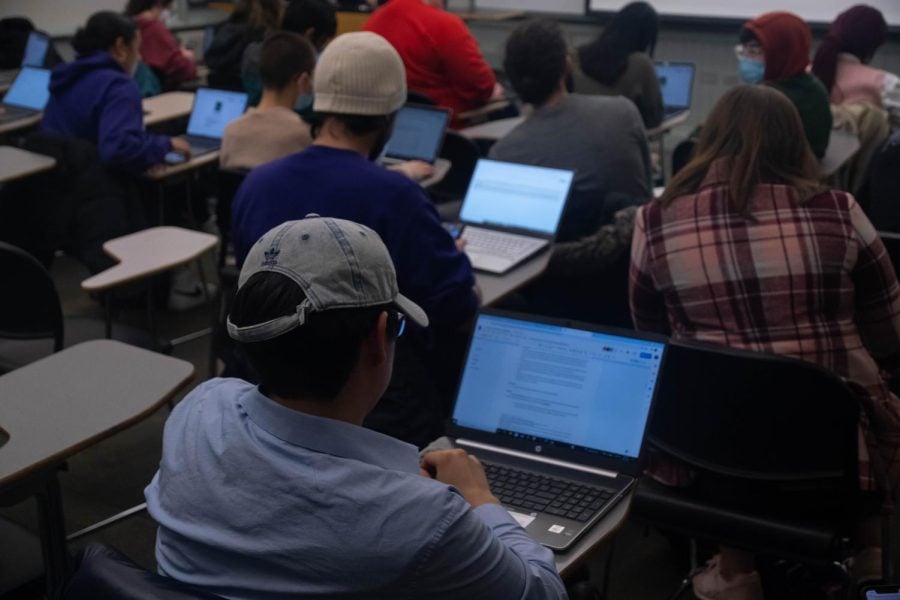ASG Senate passes Weinberg sustainability requirement resolution
Daily file photo by Seeger Gray
ASG Senate passed a resolution requiring Weinberg students to take two courses that cover sustainability issues. Senators will vote on legislation introduced today at the last meeting of the year on June 1.
May 25, 2022
The Associated Student Government Senate unanimously passed a resolution Wednesday recommending a policy requiring Weinberg students to take at least two sustainability courses in future academic years.
Sustainability Committee Co-Chair and Weinberg junior Sadie Bernstein, who cosponsored the legislation, said the requirement would count toward Weinberg’s preexisting 12 distribution requirements.
The resolution comes as University President Morton Schapiro signed a U7+ Alliance statement in October that calls on universities to make sustainability courses more accessible and to take campus action against climate change.
“(The authors of the legislation) put together quite an expansive list,” Bernstein said. “(It includes) potentially over 100 courses that are going to be in Weinberg that are currently cross-listed as environmental policy and culture classes, but also history, philosophy and environmental science.”
Bernstein said the resolution does not apply to current Weinberg students and would take effect within the next few years, if the University adopts the policy.
Speaker of the Senate and Weinberg sophomore Dylan Jost then presented several pieces of new legislation for senators to consider.
Active Minds Senator and Weinberg sophomore Maddie Kerr introduced the bill “Make Medical Leaves of Absence More Accessible and Equitable,” which calls on the University to lower the standard minimum duration of two quarters for medical leave.
Kerr said the two-quarter requirement disadvantages students on medical leave because they lose access to University housing, dining and financial aid while not actively enrolled.
“The fact that these expectations exist means that any student who tries to return from leave after one full quarter is going to have to fight for reinstatement under exceptional circumstances, making it more difficult for them to obtain approval to return,” they said.
Kerr proposed the University administration should consider one-quarter medical leaves as within the expected range, instead of an atypical circumstance.
Athletics Representative and graduate student Francesca Docters proposed another piece of legislation called “Parking on Evanston Campus.” Her bill calls on the University to make parking more accessible, affordable and safe for community members.
Some students, faculty and staff may not currently qualify for a permit because they don’t live in the University’s walking zone. This means some might have to walk home in unsafe conditions, Docters said.
She added Safe Ride is often overwhelmed with ride requests and cannot accommodate those walking home late at night. University shuttles also do not reach most off-campus houses.
“When you don’t have a car to at least make you feel a little bit safer because you can’t park on campus, it’s just pretty scary, and it doesn’t make coming to class, practice or games, or anything on campus, seem like an appealing thing to do,” Docters said.
Weinberg Senator and freshman David Aguilar also proposed legislation for the about 52 vending machines around campus to accept dining dollars.
The Senate will vote on all three pieces of legislation at its last meeting on June 1. Wednesday’s meeting also concluded the Spring 2022 funding cycle, Jost said.
Email: [email protected]
Twitter: @charlottehrlich
Related Stories:
— Associated Student Government Senate approves additional funding for some student groups
— ASG Senate passes legislation on underground tunnel use for students, confirms new Executive Board


